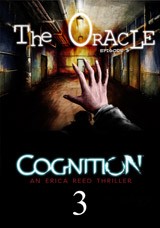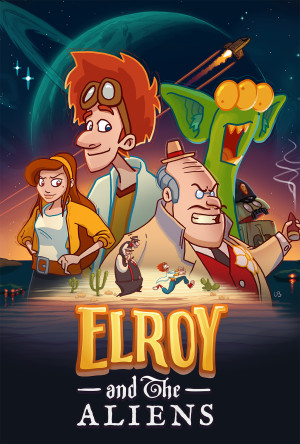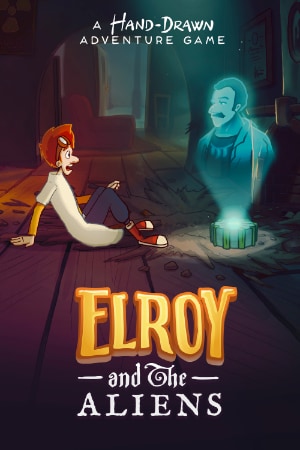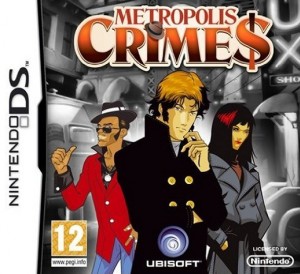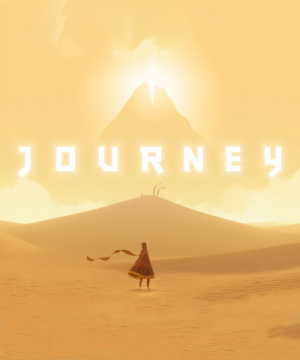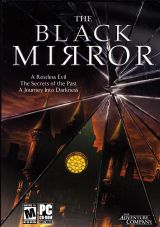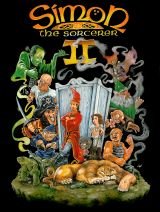Review for Cognition: An Erica Reed Thriller - Episode 3: The Oracle

Phoenix Online Studios’ episodic Cognition series is one of the rare adventure games to take the oft-used foundation of law enforcement murder mystery and take it into an uncompromisingly brutal and adult direction, pulling no punches with its depiction of evil and violence. That goal was met with moderate success in each of the first two episodes, with occasional hiccups along the way. But the third episode of this four-part series, subtitled The Oracle, is the breakthrough episode for Phoenix's Erica Reed thriller, overwhelming its remaining flaws with a stellar and committed mystery and a bone-jarring ending.
Please bear with me as I delicately tiptoe through a minefield of potential spoilers, in hopes that there are still many who haven’t given this series a try yet but might be persuaded by this episode. Those who played through the previous chapter, The Wise Monkey, will remember the events of the startling final scene, and those events are directly continued in The Oracle. Our FBI heroine Erica Reed arrives at a luxurious high-rise condominium complex that is the scene of yet another very gruesome murder, and using her special cognitive powers, quickly arrives at the conclusion that the circumstances here have a strong correlation to the serial killers who were the focus of the first two episodes. Discovering the exact nature of the connection, and what unspeakable series of events led to this point, is the entire focus of the episode.
You would probably expect that Erica will use all of her previously gathered cognitive powers at least once to solve a puzzle—you’d be correct—and that at some point Erica will gain access to a new power. And you’d be right again, but this new power is a game-changer; instead of bringing together fragments of the past, these new visions tell the story from an entirely different perspective—and in a different time, for there exists another individual with blood on their hands who has their own cognitive abilities, and their visions of the future are colliding violently with Erica’s visions of the past. Through these events, a substantial amount of back story is filled in and the dreadful truth behind all of the killings that have taken place previously comes together.
Of course, nothing is ever quite as it seems—as two disparate timelines meld together and the past collides with the future, the game’s final 15 minutes unravel in a genuinely breathtaking sequence where the actual truth appears to finally be clear, and the stage is set for the final episode. The series is now 3 for 3 in executing brilliant final scenes with intense cliffhangers, and never have I been more entranced by the series than this last sequence and its revelations, with a shocking final moment of violence that is sure to have immediate ramifications in the concluding chapter. And though it appears the evil is fully identified and all that's left is the pursuit, I have no trouble believing Phoenix might have at least one more trick up their sleeve.
The storytelling in this episode is much more momentum-driven than in the previous two episodes, and offers a significantly reduced challenge as a result; there seems little to be gained by bogging the player down in arbitrary puzzles when there is so much immediately on the line. Other than one safe combination puzzle that requires a good bit of patience, observation, and note-taking skill, the game is extremely easy and should be finished in three hours by adventure gamers of any experience level. There is greater use of fewer supporting characters, and no locations to visit outside of various rooms in and around the high-rise condo. This is a good thing; the constant wandering about Boston and over-use of the standard locations was destined to be filler if relied on once again, and instead is completely eschewed by the remarkably tight and focused narrative.
Similarly, The Oracle is definitely the best-written episode to date. Though some moments of family confrontation tend to border on melodrama, overall the game’s script is leaner and focuses more on the urgency of interactions. A couple of the series’ more prominent flaws are still present: the voice acting for supporting characters is all over the map, particularly the new male characters introduced who do not come across with nearly the emotional strength needed for their dialogue to make its mark. It’s not bad acting per se, just poor casting for characters who clearly do not sound like the personalities portrayed on screen. Also be wary of occasional graphical glitches, such as sudden repositioning of characters coming out of a cognition sequence, and the always awkward walking animations that frequently find Erica imitating different members of the bird kingdom.
Of course, Cognition's strengths remain on display as well. The background art is outstanding, especially with the moody drabness required for the game’s nighttime framework. The interface remains clean and peerlessly simple to operate. And in a game that runs on as much emotional fuel as this episode does, I’m almost out of adjectives for Austin Haynes’s wonderful soundtrack, so perfectly framing every sequence with every emotional range, from thoughtful longing to dark desperation. It is the type of original game soundtrack that every genre should be taking notice of.
Really, though, for the first time in the series the quality of the storytelling completely overwhelms the flaws, and it all comes back to the root of driving emotion for its characters. Whereas many supporting characters have seemed to serve little purpose previously, there is absolutely no wasted motion here. Every character has an essential role in the story as hero, or villain, or both, and none overstay their welcome. There is one particularly essential supporting character that functions as both hero and villain at varying times; the script dances this tightrope expertly, creating a mix of feelings in the player that really strengthens the emotional links.
The storytelling is so strong, it compels me not only to play the third episode again, but to go back and play all three episodes once more leading up to The Cain Killer, the final chapter, because this episode makes it clear that a tremendous amount of planning has gone into the entirety of Erica Reed’s story. While that doesn’t excuse some of the narrative flaws from the first two episodes, knowledge of these new events will allow me to tolerate a great deal of awkward conversations and quirks that bothered me before.
I think The Oracle can best be thought of with this analogy: the first two episodes of Cognition were the narrative equivalent of pushing a large boulder up a hill, struggling to find consistent momentum. About a half-hour into this episode, the summit is reached, and the boulder is now rolling downhill with unforeseen momentum, and there is no turning back. It’s a breathless ride, and one that I am enjoying more than ever. As a single episode, The Oracle is a lean and easy mystery (and a meaningless exercise as a standalone purchase); but as the third act of what looks to become a 15-hour game all told, it is an outstanding feat of sinister storytelling that has left this writer on pins and needles for the coming conclusion.




